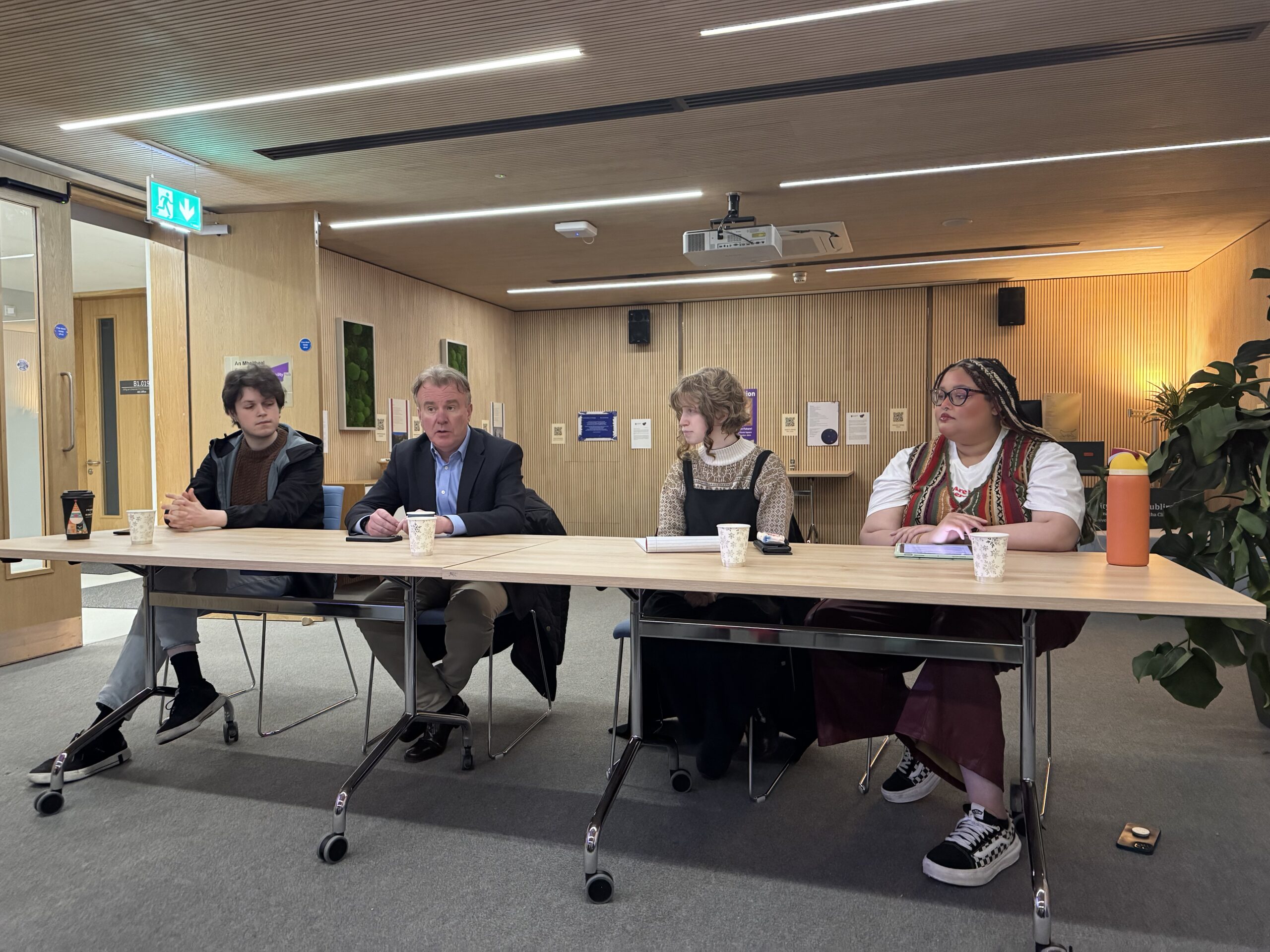On December 3rd, in celebration of the International Day of Persons with Disabilities, the Trinity Ability Co-op hosted The Disability Experience: A Panel Discussion. This collaborative event, organised alongside Trinity Vincent de Paul (VDP), brought together members of SignSoc, DUNeS, the Trinity Ability Co-op, and Senator Tom Clonan to delve into the lived realities of disability. While SignSoc couldn’t participate due to an ISL booking falling through, the event successfully explored poignant themes like media representation, mental health, and inclusive practices.
A recurring message was the need to distinguish equity from equality, as highlighted by speakers Ash Muldoon and Tom Clonan. The discussion underscored that equity is not about giving everyone the same assistance but about tailoring support to help everyone reach the same destination.
Grief, Anxiety, and the Uncertainty of the Future
One of the most moving topics was the grief and anxiety many disabled individuals feel when thinking about their futures. Panelists shared the emotional toll of navigating a world that often fails to accommodate their needs or recognise their potential.
“Planning for the future becomes an exercise in managing expectations,” explained a member of DUNeS. “Not because of what we are capable of, but because of what society often denies us.” The speakers emphasised that these feelings of grief stem from systemic barriers, not from disability itself.
Yet, the panelists also conveyed hope. Acknowledging these emotions, they explained, is the first step in reducing these anxieties, not just for disabled individuals but for society as a whole. This dual narrative of grief and resilience resonated deeply with attendees, including Provost Professor Linda Doyle, who attended to show her support.
Universal Design: A Foundation for Accessibility
Universal Design emerged as a central theme in the discussion, with speakers advocating for its integration as a baseline for accessibility. The Accessible Events Generator, by Co-op members was celebrated as a practical tool for ensuring inclusivity.
“Universal Design is about dignity,” stated a representative from the Ability Co-op. “It means never having to apologise for being yourself.” By proactively designing systems, spaces, and policies to accommodate all, Universal Design removes the need for individuals to repeatedly request supports, fostering a sense of belonging.
The panel emphasised that accessibility benefits everyone. For instance, a wheelchair-accessible shop is also accessible for parents with strollers. When additional accommodations are needed, consulting directly with disabled individuals ensures practical, person-centred solutions.
Representation and Authentic Stories in Media
The discussion extended to media representation, celebrating the casting of Marissa Bode as Nessarose in Wicked. Bode, the first authentic wheelchair user to play the role since the musical’s debut 21 years ago, exemplifies the importance of authentic disability representation.
“Consultation with disabled individuals is crucial to making workplaces accessible and bringing authentic disabled characters to life,” Bode shared in a recent Teen Vogue interview. On the Wicked set, Access Coordinator Chantelle Nassari, also a wheelchair user, ensured accommodations met the needs of cast and crew alike.
This casting decision was hailed as a step forward in challenging traditional Hollywood practices, which often rely on non-disabled actors to portray disabled characters. As a panelist remarked, “Authentic representation provides visibility and challenges outdated narratives about what disability means.”
Dynamic Nature of Disability and the Need for Nuanced Support
The panel also explored the dynamic and evolving nature of disability. They highlighted that disability is not a static experience—it changes over time, shaped by personal, social, and environmental factors. This fluidity underscores the need for medical professionals, educators, and therapists to adopt more nuanced approaches.
“We need more professionals who get it—who don’t just sympathise but truly empathise because they’ve lived it,” one speaker stressed. Increasing representation of disabled professionals in these fields can help bridge the gap between theory and practice, fostering systems of care that are inclusive, compassionate, and effective.
Leadership and Advocacy: A Message from the Provost
Provost Professor Linda Doyle commended the Trinity Ability Co-op and DUNeS for their advocacy, stating, “I learn so much from the Ability Co-op and DUNeS. Their voices continue to shape how we understand inclusion and equity at Trinity.”
Her presence underscored the importance of institutional leadership in advancing disability rights and amplifying the voices of those with lived experiences. Genuine change, as she emphasised, requires active listening, collaboration, and a willingness to learn.
A Call to Action
The discussions aligned closely with the UN Sustainable Development Goals, particularly SDG 10 (Reduced Inequalities) and SDG 16 (Peace, Justice, and Strong Institutions). By advocating for universal design, fostering inclusive policies, and amplifying disabled voices, the panel provided a roadmap for dismantling systemic barriers.
From addressing grief and anxiety to championing resilience and representation, the event was a powerful reminder of the work still needed to create a more inclusive world. As one panelist concluded, “Disability rights are human rights, and our future depends on all of us recognising that truth.”
This event, while celebrating the strength and wisdom of the disability community, also issued a challenge to society: to listen, learn, and act to build a future where equity and accessibility are universal principles, not exceptions.







